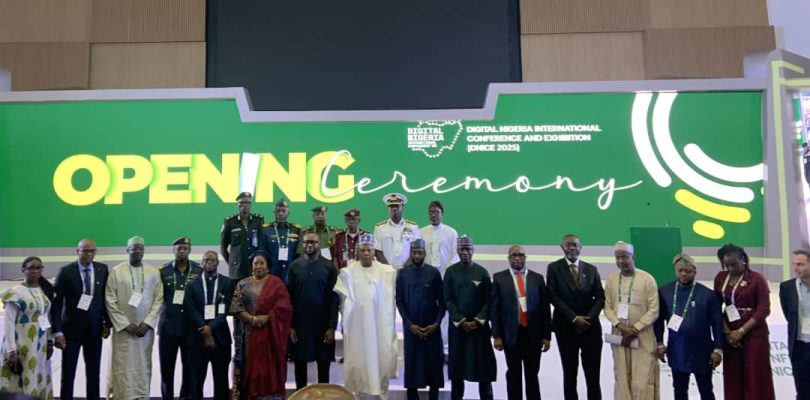By Chimezie Godfrey
Vice President Kashim Shettima has declared that Nigeria must not miss another opportunity to redefine its place in the world, describing the digital economy as the nation’s “second chance” to achieve relevance, prosperity, and inclusion after missing out on previous industrial revolutions.
Speaking in Abuja on Tuesday at the opening of the Digital Nigeria International Conference and Exhibition (DNICE 2025), organised by the National Information Technology Development Agency (NITDA), Shettima said the country’s economic future depends on harnessing its digital talent and infrastructure.
“We cannot keep lamenting our absence in past industrial revolutions. This digital web offers us a redemptive opportunity, an opportunity to define our own terms in the next chapter of global progress,” he said.
The Vice President noted that the Tinubu administration’s reforms are already rekindling investor confidence and laying a solid foundation for inclusive growth through technology.
He explained that the government’s digital strategy rests on three pillars , people, infrastructure, and policy and that programmes like the Three Million Technical Talent (3MTT) initiative, nationwide broadband expansion, and the proposed National Digital Economy and E-Governance Bill are designed to unlock new opportunities for Nigerians.
According to him, digital transformation will empower citizens across all sectors — from farmers accessing real-time market data to young Nigerians earning globally through remote jobs.
Shettima commended the Ministry of Communications, Innovation and Digital Economy, NITDA, and other agencies for their drive to make Nigeria a digital hub in Africa.
In his keynote, Minister of Communications, Innovation and Digital Economy, Dr Bosun Tijani, echoed Shettima’s optimism, describing “Digital Nigeria” as a national call to action toward building a prosperous, inclusive society driven by innovation.
He recalled that bold decisions like the liberalisation of the telecoms sector in 1999 opened new frontiers for Nigeria’s economy, noting that the ICT sector now contributes 16–18% of GDP and could soon overtake oil and gas.
Tijani revealed that Nigeria is leading a World Bank-backed project to deploy 90,000 kilometres of open-access fibre, the largest in the developing world, alongside plans to install 4,000 telecom towers and connect 20 million unserved Nigerians.
Earlier, NITDA Director-General Kashifu Inuwa Abdullahi said the conference, themed “Innovation for a Sustainable Digital Future: Accelerating Growth and Inclusion,” aligns with President Tinubu’s eight-point agenda and has attracted over 4,800 participants from 12 countries.
He warned that Nigeria’s youthful population could be either a blessing or a burden, urging urgent action to harness their energy and creativity for national growth.
“If we harness the talent of our youth, we can power not just Nigeria but the entire Africa into a new era of prosperity,” Abdullahi said.

